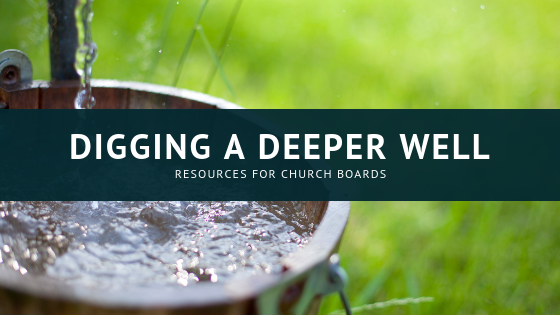Mention anger in church and most people will say something like “well, Jesus did overturn the tables in the temple, right?” Almost as reactive balance, someone else will respond with “But isn’t anger one of the seven deadly sins?”
We wonder if there are other ways to talk about anger in church that might let us go deeper. As strife spreads in our culture and our politics, congregations are not immune to anger (as if they ever were). It seems that people are bringing their anger to church with them. If they cannot express anger at work for fear of losing a job and they can’t express it at home because of already strained relationships, they can at least carry it into their church life. This is a tender, but important topic for churches – and church boards. Nothing will burn out a pastor, church leader, or volunteer more quickly than being on the receiving end of a burst of anger from one who is in their community of faith.
Is there a positive side to anger? In her 2005 personal essay for NPR’s “This I Believe” series, activist Cecilia Muñoz suggests there is. A recent discussion with a group of pastors led to a complex and engaging conversation about anger, justice, fear, sadness, and hope.
Getting Angry Can Be a Good Thing
I believe that a little outrage can take you a long way.
I remember the exact moment when I discovered outrage as a kind of fuel. It was about 1980. I was 17, the daughter of Bolivian immigrants growing up in suburban Detroit. After a dinner table conversation with my family about the wars going on in Central America and the involvement of the United States (my country by birth and my parents’ country by choice), a good friend said the thing that set me off. He told me that he thought the U.S. might someday go to war somewhere in Latin America. He looked me in the eye and told me that if it happens, he believes my parents belong in an internment camp just like the Japanese-Americans during World War II.
Now this was someone who knew us, who had sat at our table and knew how American we are. We are a little exotic maybe, but it never occurred to me that we were anything but an American family. For my friend, as for many others, there will always be doubt as to whether we really belong in this country, which is our home, enough doubt to justify taking away our freedom. My outrage that day became the propellant of my life, driving me straight to the civil rights movement, where I’ve worked ever since.
I guess outrage got me pretty far. I found jobs in the immigrant rights movement. I moved to Washington to work as an advocate. I found plenty more to be angry about along the way and built something of a reputation for being strident. Someone once sent my mom an article about my work. She was proud and everything but wanted to know why her baby was described as “ferocious.”
Anger has a way, though, of hollowing out your insides. In my first job, if we helped 50 immigrant families in a day, the faces of the five who didn’t qualify haunted my dreams at night. When I helped pass a bill in Congress to help Americans reunite with their immigrant families, I could only think of my cousin who didn’t qualify and who had to wait another decade to get her immigration papers.
It’s like that every day. You have victories, but your defeats outnumber them by far, and you remember the names and faces of those who lost. I still have the article about the farm worker who took his life after we lost a political fight. I have not forgotten his name — and not just because his last name was the same as mine. His story reminds me of why I do this work and how little I can really do.
I am deeply familiar with that hollow place that outrage carves in your soul. I’ve fed off of it to sustain my work for many years. But it hasn’t eaten me away completely, maybe because the hollow place gets filled with other, more powerful things like compassion, faith, family, music, the goodness of people around me. These things fill me up and temper my outrage with a deep sense of gratitude that I have the privilege of doing my small part to make things better.
- Why is Muñoz angry after the dinner conversation with her family and friend? What does she do with that anger—and what does that anger do with her?
- Muñoz says that the “hollow place that outrage carves in your soul” needs to be filled with good things. What are those things? And how do we know that the “hollow” has been carved out enough – and not too much?
- If anger is useful in fueling our work for justice, how can you discern when to take “off the burner” before it boils over and when can you let anger continue to burn in you in service of a better world? Is this an individual decision? Or how does your congregation think this through as a community of faith?
- If, as Muñoz suggests, anger can be a good thing, how do pastors and congregational leaders receive it well? Or for that matter express it well? Is this even possible in church life – to have anger seen as helpful to our mission and ministry? Do you have reflective spaces where those choices can be carefully made?
(A special thank you to Macedonian Ministry’s Ft. Worth cohort who discussed this topic and Muñoz’s piece this week and offered – and wrestled with – many of these questions.)








No Comments